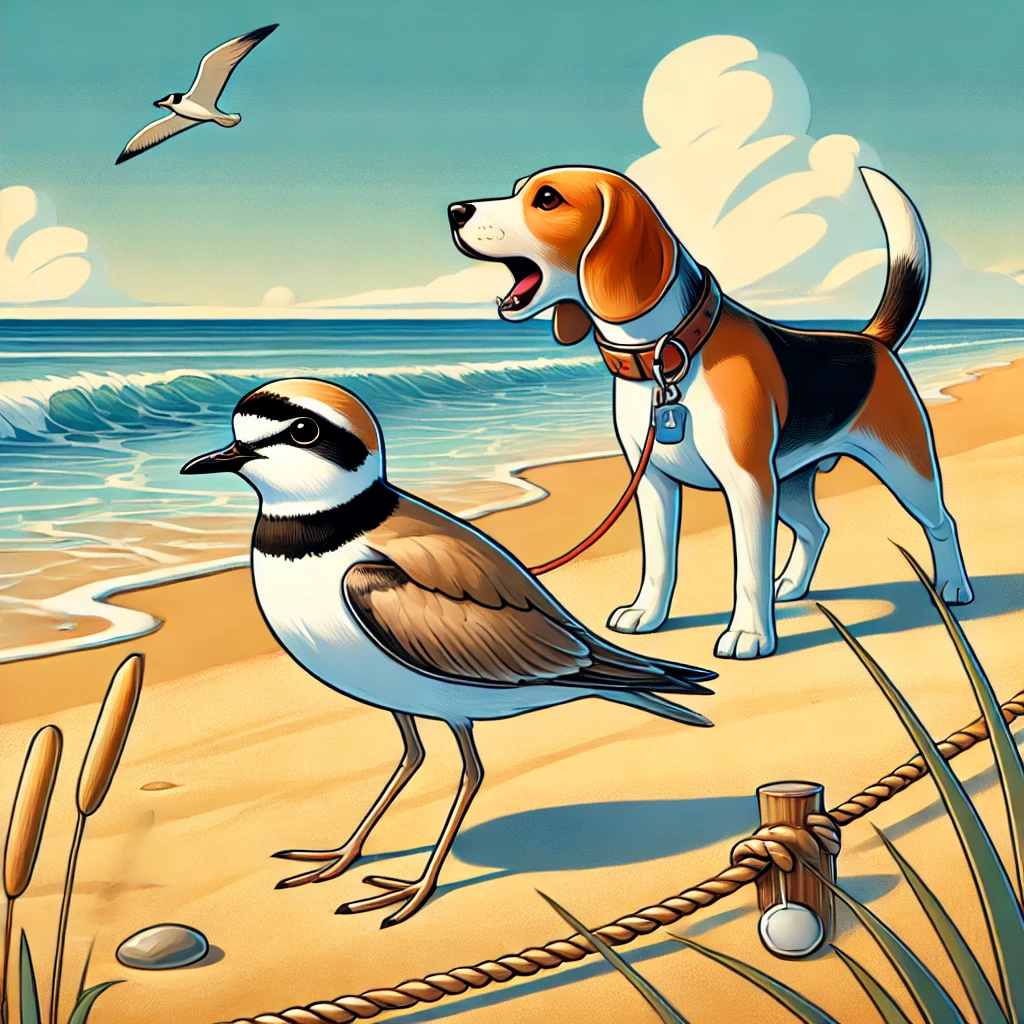The plover, a seemingly innocuous bird, is often celebrated for its delicate appearance and role in various ecosystems. However, for those of us who have had less-than-pleasant encounters with this bird, the experience can transform admiration into something closer to loathing. Here’s why the plover has earned a special place in my list of natural nuisances.
The Screeching Alarm Clock of Nature
One of the most maddening aspects of the plover is its incessant, high-pitched screeching. The sound is not just a casual call; it’s a piercing, repetitive noise that has the unique ability to penetrate through the most robust pair of earplugs. Whether you’re camping in a national park or enjoying a peaceful walk along the beach, the plover’s call is likely to disrupt the serenity with its jarring shrieks.
Imagine waking up at the crack of dawn, not to the gentle sound of waves or rustling leaves, but to the shrill cry of a plover perched nearby. It’s as if the bird is on a mission to ensure that no one within a mile’s radius can sleep past sunrise. The noise is relentless, and once you’ve heard it, it’s impossible to unhear it.
The Plover’s Aggressive Territorial Behavior
While many birds are territorial, the plover takes it to another level. If you’ve ever wandered too close to a plover’s nesting area, you’ve likely been on the receiving end of their aggressive tactics. These birds are notorious for dive-bombing intruders, flapping their wings furiously as they attempt to scare off anything that comes too close.
This territorial aggression isn’t limited to predators or large animals; humans are often the target of the plover’s wrath. Whether you’re walking your dog, hiking, or simply enjoying the outdoors, you might find yourself ducking and dodging as a plover swoops down at you, all because you unknowingly crossed into its self-declared territory.
The Unforgiving Nesting Sites
Plover nests are notoriously difficult to spot. Often located on the ground, these nests blend seamlessly into their surroundings, making it easy for an unsuspecting passerby to stumble too close. The result? A furious plover intent on defending its eggs or chicks at all costs.
The real issue here is the sheer unpredictability of these nesting sites. You could be walking along a seemingly peaceful stretch of beach or parkland, only to be suddenly accosted by a protective plover. This unpredictability turns a simple outing into a minefield of potential plover encounters, each more stressful than the last.
The Reason Dogs Aren’t Allowed on Many Beaches
This is perhaps the biggest reason for my disdain towards plovers. These birds are often presented as the reason why dogs are not allowed on many beaches. As a dog owner, this restriction feels particularly irksome. Beaches, which should be a place of freedom and joy for our furry friends, are instead off-limits because of the need to protect plover nesting sites.
The irony here is hard to ignore. While plovers are busy screeching at and dive-bombing innocent passersby, our well-behaved dogs are kept away from the beach. The very creature that disrupts the peace and drives people away is the one being protected at the expense of our pets’ enjoyment. It’s a frustrating reality that turns a relaxing day at the beach into a disappointing experience.
Plover Conservation Efforts: A Double-Edged Sword
It’s worth acknowledging that many species of plovers are protected due to declining populations. While conservation efforts are essential, they often come with restrictions that limit human access to certain areas. Beaches, parks, and trails might be closed off or heavily regulated to protect plover nesting sites.
While these efforts are undoubtedly important, they can also be frustrating for those who enjoy outdoor activities. The feeling of being constantly told to “stay away” from certain areas due to plover conservation can breed resentment, especially when you’re just trying to enjoy nature without being harassed by an overzealous bird.
The Hypocrisy of the Plover’s Popularity
Despite all these annoyances, plovers are often romanticized in popular culture and conservation messaging. They’re depicted as adorable, vulnerable creatures that need our protection. While there’s truth in their ecological importance, this portrayal glosses over the very real frustrations they cause.
The hypocrisy here lies in the way plovers are marketed to the public. We’re encouraged to admire them from afar, to appreciate their role in the ecosystem, all while they screech, dive-bomb, and terrorize us at every turn. It’s a bit like being told to love a mosquito because it’s part of the food chain—there’s an understandable disconnect between the ideal and the reality.
In the end, my hatred for the plover is born out of personal experience. It’s not that I don’t recognize the importance of this bird in the ecosystem, or that I wish it any harm. It’s simply that, for all their delicate beauty, plovers are a prime example of how nature’s creatures can be both awe-inspiring and utterly infuriating. So, the next time you hear that familiar screech or see one of these birds staking out its territory, know that you’re not alone in your frustration. The plover is a perfect reminder that even the smallest creatures can make the biggest impact—whether we like it or not.




